PHILADELPHIA (Army News Service, Dec. 11, 2009) -- Soldiers and civilians attending the Master Resilience Training course were challenged by Sgt. Maj. of the Army Kenneth O. Preston Thursday to take the lessons learned here back their units and share them with Soldiers and families.
More than 150 Soldiers are attending the second iteration of the 10-day "Train-the- Trainer" course offered at the Inn at Penn hotel and conference center. The course is part of the Comprehensive Soldier Fitness program that is aimed at building mental and emotional strength in Soldiers.
"The knowledge you have gained here is not solely yours to keep; but yours to take and impart to others in your units and organizations" Preston said, referencing a sign posted at Fort Knox where he attended the master gunner course.
"So what I need from all of you is to be trainers, to go back and teach," Preston said. "All of you as Master Resilience Trainers have to do the same thing: take what you've learned here back to others-- can you do that for me'"
Preston also suggested students meet with commanders to explain how they can best use their training.
"This program is all about putting subject-matter experts back in the units and organization to serve as a 'tool for commanders' to help build resiliency training within the organization," he said. "...Based on the stress on the force and all the dynamics that we got going on out there, we got to help our Soldiers understand themselves."
Thus far, about 300 active-duty, National Guard and Reserve Soldiers, as well as Air Force and civilians have attended the University of Pennsylvania-sponsored program which focuses on self awareness, self regulation, mental agility, strength of character and connectivity in an effort to enhance Soldier leadership effectiveness. In all, the Army expects to graduate some 1,800 servicemembers by the end of the fiscal year.
Col. Jeffrey E. Short, medical director with the CSF program, who helped develop the MRT curriculum for Soldiers, said the program is designed around the World Health Organization's definition of fitness which includes five domains: spiritual, emotional, family, social, and physical.
"The Army does 'pretty good' at physical fitness, and we do passively provide some of these other domains of fitness," Short explained. "But we also know that what we're doing is not perfect because we're having a little bit of an uptick in bad outcomes -- suicides, sexual assaults, behavioral health issues, etc. So maybe what we could do to get better is focus more on some of these other domains of fitness with the same rigor much like we do with physical fitness."
Lt. Col. Sharon McBride, senior research psychologist for the Comprehensive Soldier Fitness program, said a common misconception about the program is that when Soldiers hear CSF they think it's about physical training.
"We've have Soldiers show up here with 10 sets of PT uniforms, thinking they were going to come here for two weeks and do PT," she said.
However, she added what the program is really about is the overall health of the Soldiers. And she added the program is perfectly designed to help the Army meet that goal.
"This was General Casey's vision to expand the concept of fitness and to build resiliency in our Soldiers," she said. "This program has two distinct core assets that other programs don't -first of all is it based on scientific evidence that has been proven to work, and secondly it's a train-the-trainer program, so it teaches you to teach others," she explained.
"There are a lot of programs out there that promise they will make you the best thing since sliced bread, but they don't work -- this program does," she added.
Still, both Short and McBride agree that it will take a cultural change before the Army sees the full benefit of the program.
"There will have to be a cultural shift in the way we think about fitness," McBride said. "We honed in on physical, but here we are expanding the Soldier mindset to incorporate these other essentially important elements of making Soldiers really fit. It's a holistic approach to physical fitness. The result will be better leadership skills, better personal interaction skills, and better family relationships."
Meanwhile, Preston told students the Army's long-term goal is to introduce the MRT training curriculum at Fort Jackson, S.C., where it will become part of the noncommissioned officer educational school system, much like Master Fitness Training and Drill Sergeant School.
"The lesson learned here must be embedded into our Army institution, our NCOES systems, training courses. We must make it part of the training we do everyday," he said.
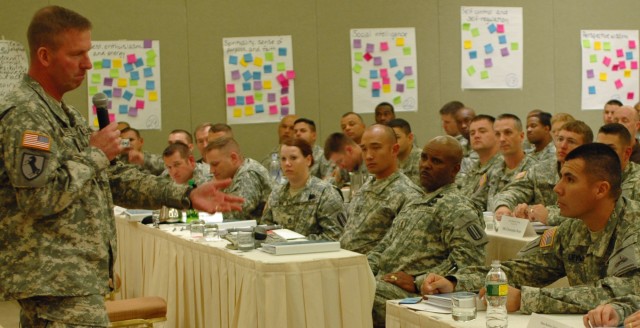
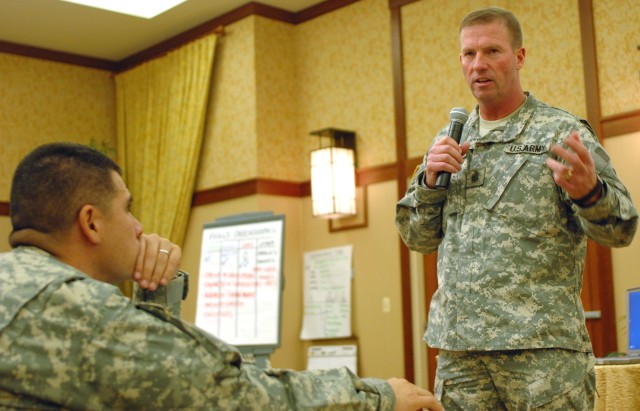
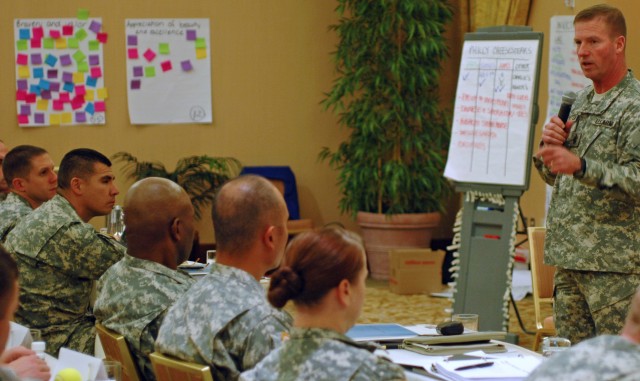
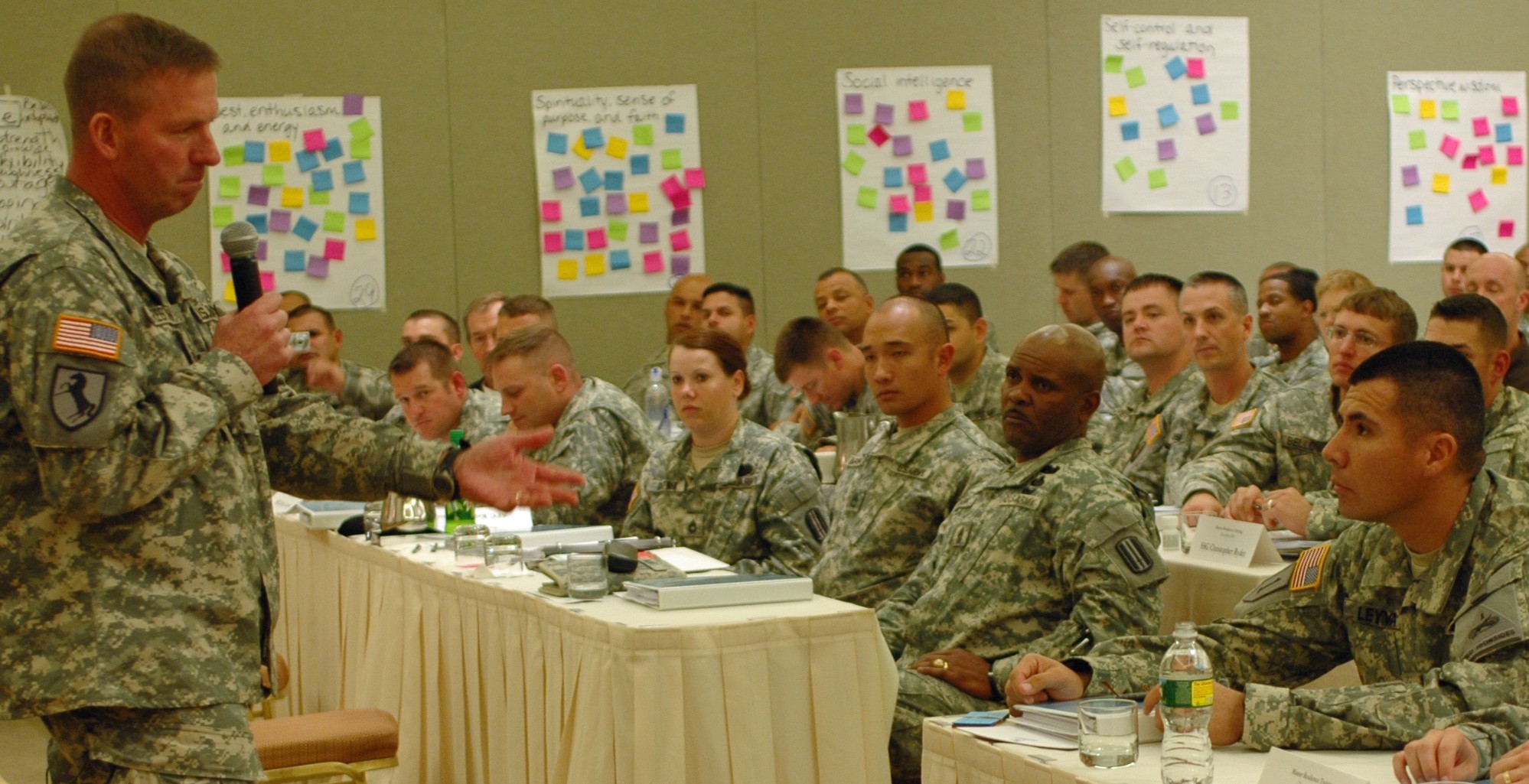
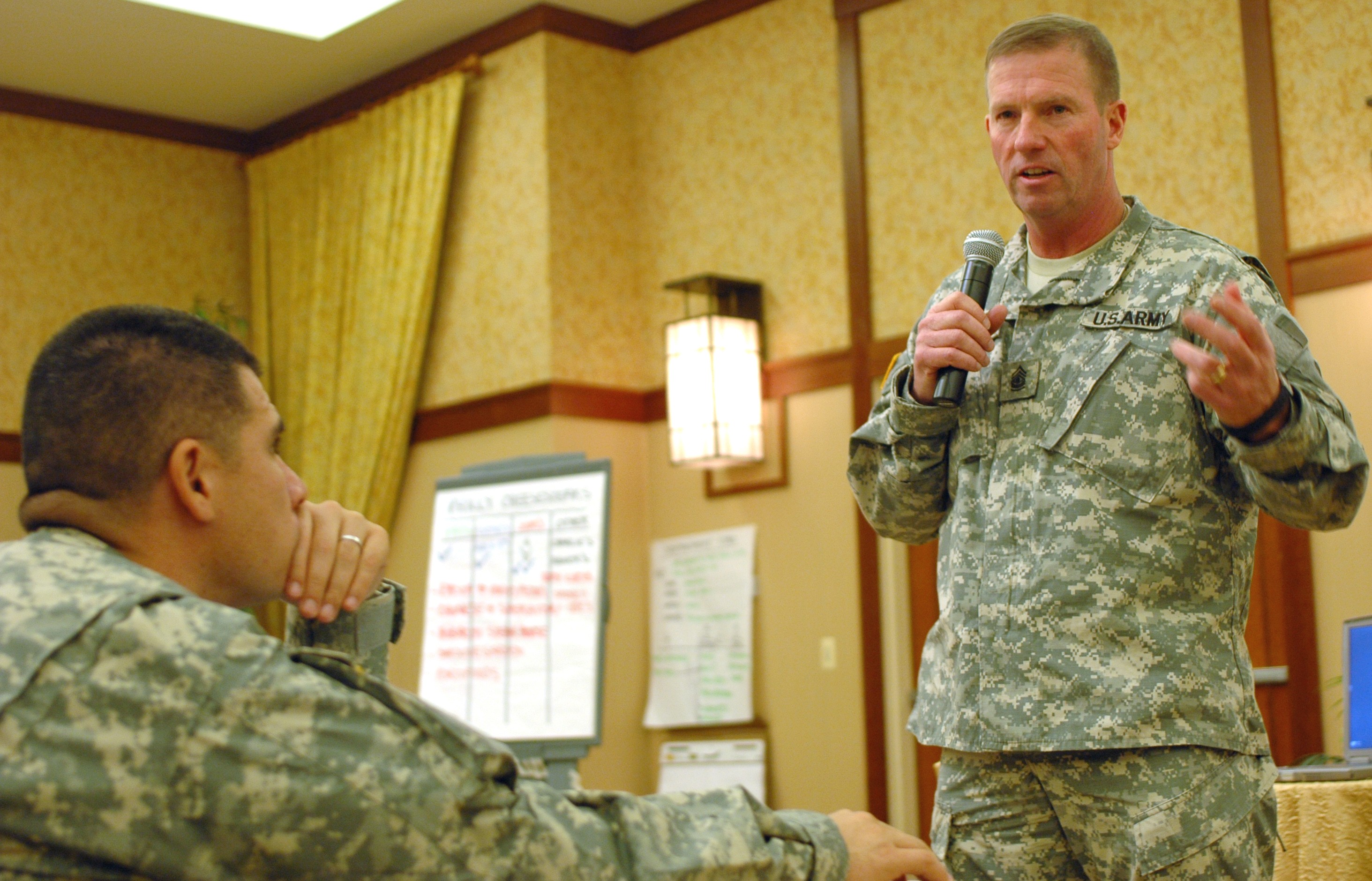
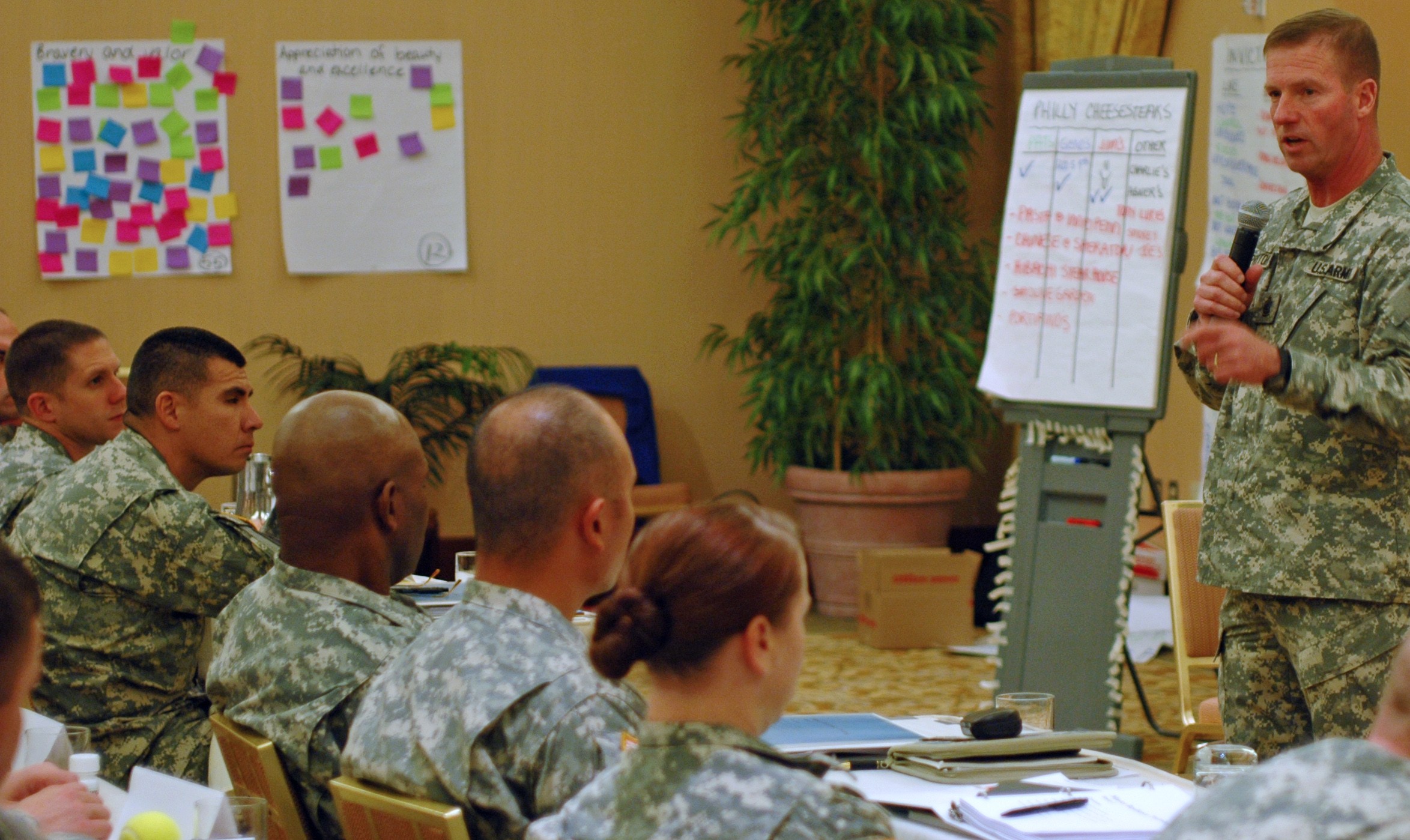
Social Sharing